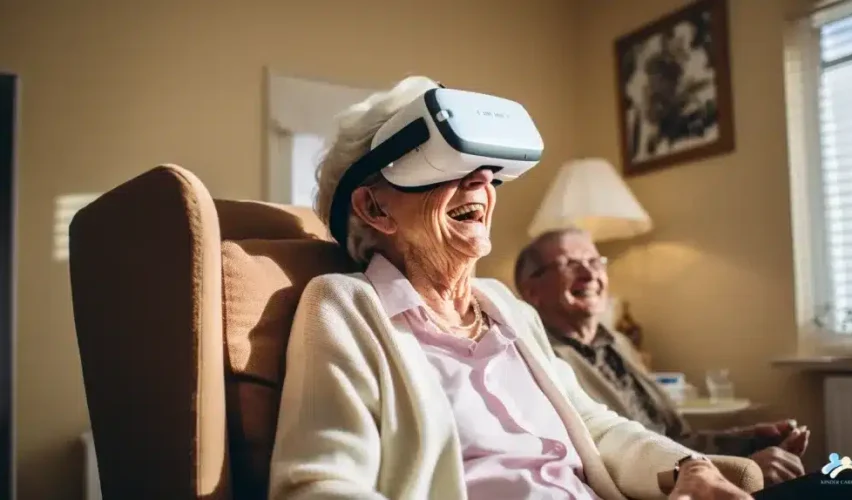- The Future of Home Care
- Why Home Care Matters
- Key Trends in Home Care
- Challenges and Opportunities
- The Human Touch in Care
- Conclusion
- Call to Action
The Future of Home Care: A Transformative Revolution
The home care industry is undergoing a transformative revolution. As the global population ages and the demand for personalized care rises, advancements in technology and innovative approaches are reshaping how we provide support at home. By 2025, home care will transcend traditional medical and physical care, offering holistic solutions that prioritize dignity, independence, and quality of life.
This article explores the key trends and innovations set to redefine home care in 2025.
The Growing Importance of Home Care
Several factors are driving the expansion of the home care industry:
- Aging Population: By 2030, 1 in 6 people will be over 60, according to the World Health Organization (WHO), increasing the demand for caregiving solutions that allow seniors to age gracefully at home.
- Preference for Aging in Place: Many seniors prefer the comfort and familiarity of staying in their homes rather than moving to institutional care.
- Advancements in Healthcare Technology: Cutting-edge innovations are bridging the gap between hospitals and home environments, enabling sophisticated care at home.
Trends Shaping the Future of Home Care

Digital Technology
1. Technology-Driven Solutions
Technology is revolutionizing the delivery of home care services, enhancing both efficiency and outcomes.
- Telehealth Expansion: Virtual consultations and remote diagnostics reduce the need for in-person visits, offering timely medical advice and monitoring.
- Wearable Devices: Smartwatches and biosensors track vital signs like heart rate, oxygen levels, and glucose, enabling early detection of issues.
- AI-Powered Tools: Artificial intelligence aids in tasks such as medication reminders, fall detection, and personalized care planning. AI chatbots can even provide companionship and cognitive stimulation.
2. Personalized and Holistic Care
Home care is shifting from purely medical support to comprehensive care that addresses emotional, mental, and social well-being.
- Customized Care Plans: Advanced assessments allow for tailored services based on individual needs, preferences, and health conditions.
- Mental Health Integration: Caregivers now manage conditions like anxiety and depression, focusing on emotional well-being.
- Cultural Sensitivity: Incorporating cultural preferences, languages, and traditions makes care more inclusive and effective.
3. Smart Home Integration
Smart home technology supports seniors in living independently.
- Voice-Activated Systems: Devices like Amazon Alexa and Google Home let seniors control lights, appliances, and security systems hands-free.
- Home Automation: Smart thermostats, automated lighting, and security cameras improve safety and convenience.
- Fall Prevention Sensors: Motion-activated floor sensors detect falls and alert caregivers or emergency services instantly.
4. Workforce Evolution
The caregiver role is evolving, with a focus on skill development and professional growth.
- Specialized Training: Caregivers are trained in emerging technologies, mental health care, and chronic disease management.
- Flexible Work Models: Hybrid schedules support caregiver well-being and attract talent in a competitive market.
- Emotional Intelligence: Developing empathy, patience, and communication skills enhances client relationships.
5. Data-Driven Decision Making
Data analytics improve the efficiency of home care by providing actionable insights.
- Predictive Analytics: Algorithms analyze patient data to predict health declines, enabling preventive care.
- Real-Time Reporting: Caregivers log activities and observations in real time, ensuring continuity and transparency.
- Outcome Tracking: Metrics evaluate the effectiveness of care plans, driving continuous improvement.
6. Green and Sustainable Practices
Eco-friendly practices are becoming integral to home care operations.
- Paperless Operations: Digital platforms minimize waste and streamline processes.
- Energy-Efficient Equipment: Using energy-saving devices reduces the carbon footprint.
- Sustainable Transportation: Electric and hybrid vehicles are being adopted for caregiver visits.
Challenges and Opportunities
While these trends offer immense potential, challenges remain:
- Accessibility: Advanced technologies must be affordable and accessible to all seniors.
- Workforce Shortages: Innovative recruitment and retention strategies are needed to address caregiver shortages.
- Privacy Concerns: Data collection should balance benefits with strong privacy protections.

The Human Element in Home Care Innovation
The Human Element in Home Care Innovation
Despite technological advancements, human connection remains the heart of home care. Empathy, compassion, and personal interaction are irreplaceable. Innovations should complement, not replace, the human touch that defines quality caregiving.
Conclusion
The future of home care is bright, driven by personalized, tech-enabled, and holistic solutions that prioritize independence and dignity. By 2025, the industry will redefine how we support seniors and individuals with health challenges.
As we embrace these advancements, it’s essential to ensure accessibility, sustainability, and empathy remain at the core. At Previce Care, we are committed to staying at the forefront of these trends, delivering exceptional home care services tailored to your evolving needs.
Call to Action
Are you ready to experience the future of home care today? Book a FREE consultation with Previce Care to learn how our innovative solutions can support your loved ones with dignity and compassion.
Related Articles
- 4 Reasons the Healing Power of In-Home Care is the Best Choice for Your Loved Ones
- 10 Essential Tips for Caring for Aging Parents at Home: Caregiving 101




